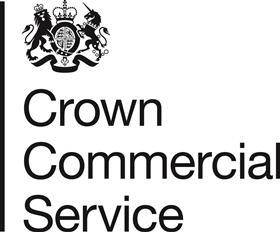A recent HSJ webinar explored how NHS organisations can leverage their position for maximum benefit in their communities

As part of the government’s Kickstart Scheme, which ran from 2020 to early 2023, Dorset County Hospital Foundation Trust put together a cohort of 16-to-24-year-olds on Universal Credit who were at risk of long-term unemployment and disengagement. Some 40 young people were given work experience at the trust, of whom 80 per cent subsequently gained permanent jobs in the organisation.
In association with
The project is just one example of the extent to which leaders at the trust are viewing the generation of social value as part of its work. In the last year or so, the trust has started to embed its social value commitments as an anchor institution into its strategy, business planning processes, and policies.
“It’s an intrinsic part now of what Dorset County Hospital FT aims to deliver over and above the delivery of direct healthcare,” says Simon Pearson, the trust’s head of charity and social value. “So really delivering that social, economic, and environmental improvement to improve the wellbeing of the communities we serve.”
There are examples around the country of trusts using their influence to benefit their local communities, says Sarah Jewell, deputy director partnerships and health strategy, Crown Commercial Service. As the biggest public procurement organisation in the UK, CCS provides frameworks for procurement and opportunities to drive value through partnerships.
She cites the example of one trust that worked closely with a supplier to deliver value into the local area by providing work experience for female students, putting on employability fairs with local job centres, and giving presentations to youth groups with the YMCA.
“The NHS can scale up into a national power but it can also get right down into what is really important for regions and localities,” says Ms Jewell. “There’s a huge amount of power intrinsic to procurement and there’s a real positive opportunity through collaboration.”
It was this capacity of NHS organisations to influence their local areas that was the subject of a recent HSJ webinar for which Mr Pearson and Ms Jewell were both panellists.
Run in late January, in association with Crown Commercial Service, the session saw panellists consider how integrated care systems might best build economic and social value among their populations. How and to what extent can and should ICSs explore this role, and what would it mean for employment and procurement strategies?
NHS organisations as anchor institutions
Health and care leaders have an opportunity to take a holistic view of how people’s lives can be improved, including via a good education, accessible healthcare, quality housing, and meaningful employment, noted Bridget Gorham, health economics policy adviser at the NHS Confederation. “By recognising the importance of its role as an anchor institution, the NHS can serve as an engine for the economy and as a security net for communities.”
Alongside their primary function, anchor institutions are those that play a significant and recognised role in a locality by making a strategic contribution to the local economy. “NHS organisations are renowned as important anchor institutions given their size, workforce, procurement, budget, environmental impact, and general economic, social, and civic influencing power,” added Ms Gorham. “They also operate in every part of the country, meaning the NHS voice matters whether you’re in a rural, metropolitan or even urban economy.”
Since April 2022, NHS England has required the assessment of all bids from potential suppliers to have at least a 10 per cent sustainability and social value weighting
One lever through which NHS institutions can drive social and economic value locally is procurement. In Dorset, for example, local spend in 2022-23 was just over £7m, which equates to around 8 per cent of the organisation’s total overall spend. Alyson Brett, managing director at NHS Commercial Solutions, describes the “creative” end of procurement. “In my experience this is where it gets really exciting for procurement in the NHS and it’s where we can start to work collaboratively on health population initiatives.”
Since April 2022, NHS England has required the assessment of all bids from potential suppliers to have at least a 10 per cent sustainability and social value weighting. And the new procurement act, which is expected to come into force in October 2024, will see a move away from assessment of the most economically advantageous tender to simply that considered most advantageous. This, Ms Brett suggested, will make it easier for NHS organisations to make sustainability and social value central to procurement decisions.
Panellists also felt the new NHS Provider Selection Regime, which came into force at the beginning of the year, could offer new opportunities for integrated care boards to create social value through procurement. “The direction of travel overall is that procurement should be an enabler to you delivering your local policy, whether that be sustainability, whether that be economic growth,” said Ms Jewell.
Engaging staff and measuring impact
Dorset County Hospital FT started its social value journey with a social value pledge. “We found that the best way to engage the board early on was to focus on sustainability,” said Mr Pearson.
“A culture change and shift in mindset [is] needed within the organisation,” he added, noting that the trust has used a number of avenues to engage frontline staff with this agenda, including posters showing the social value pledge, presentations to divisional teams and managers, and a social value activity report showcasing achievements.
Ms Brett agreed about the importance of staff engagement and to that end, NHS Commercial Solutions employs sustainability and social value subject matter experts to understand how procurement can be used to further the local sustainability and social value agenda. “For us, it’s very much about training and development and going beyond awareness into application.”
Being able to demonstrate the impact of efforts to increase social value is crucial, and Mr Pearson shared an example of how Dorset has done this. “We measure the social return on investment for our major capital projects, working with construction companies,” he said. For example, a £12m multistorey car park project is reported to have delivered £4m worth of social return on investment back in and through the community.
To help ICSs gauge their progress in supporting broader social and economic development – designated as their fourth core purpose by NHSE in 2020 – the NHS Confederation published a report in December 2022 titledUnlocking the NHS’s social and economic potential. It was accompanied by a model suggesting four key steps through which ICSs can deliver on social value, and a framework to help ICSs assess how advanced they are in meeting this purpose.
Ms Gorham said: “It’s not a one size fits all kind of purpose, so we gave some practical examples where leaders can assess where they’re going – whether they’re emerging, established, or expanding – on things like inclusive growth, tackling climate change, working with local government, acting as an anchor, working with employers for healthy workplaces, [and] bringing care closer to home with health on the high street.”
An on-demand recording of this webinar is available.
To access the recording, visit this link and click play.
If you have previously registered for the event, clicking the link will immediately bring you to the recording. Simply press play.
If you have not previously registered, complete the form that appears. You’ll then be able to immediately watch the recording.

























